Want to hear more from the actors and creators of your favorite shows and films? Subscribe to The Cinema Spot on YouTube for all of our upcoming interviews!
Currently pursuing a film career with a passion for film journalism, storytelling of any kind has allowed me to let my imagination run wild in ways even I couldn’t predict. Expect me to write about film, TV, and the entertainment industry.
Because the Internet and social media have given everyone a platform to be a critic, professionally or not, it often feels as if people forget there are human beings behind the art that we have the pleasure of enjoying. Film, television, music, and other forms of entertainment are not a one-man show. It takes an army of imaginative individuals to create something that resonates with audiences.
At this year’s WonderCon, I had the pleasure of talking to production designer Brandon Mendez (Flamin’ Hot), makeup department head Elle Favorule (The Iron Claw), costume designer Emilio Sosa (Descendants: The Rise of Red), key hairstylist Joyce Gilliard (Genius: MLK/X), and supervising art director Natasha Gerasimova (Loki Season 1). To remind folks of the group effort it takes to create movie magic, they discuss how and where they got started, dealing with self-criticism and those of others, and more.
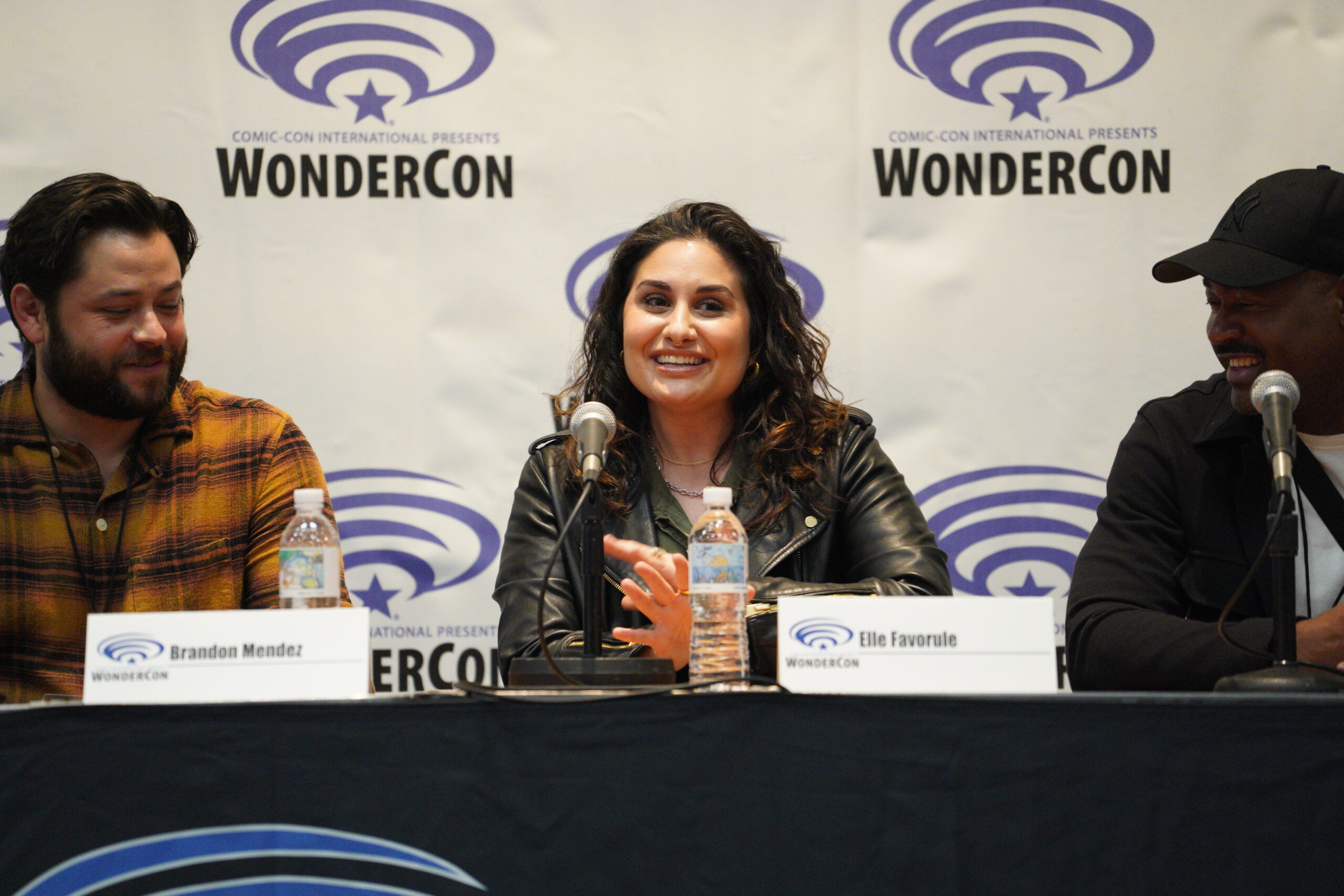
Creative Origins
I’m fascinated by other people’s interests in film — what they want to do and why they want to do it. [With] that said, everyone wants to be a writer-director. That’s the most common answer you hear, so when I encounter someone saying something different – music editor, foley artist, or makeup artist – a part of me gets a little excited because not only is it different, but I’m a sucker for the filmmaking process and love learning about all kinds of departments. With all that in mind, what about your particular craft called out to you?
Elle Favorule: I have been interested in makeup since I was a kid, but I didn’t know it could be a career. And then, once I figured it out, it opened up a whole new world. I went to makeup school; I did a six-month intensive where I learned makeup, special effects, and every element across the board so I could come out as a fully working artist. You expect to be able to start getting jobs, but you have to be willing to work in indies, on a low budget, on no money, and on student films, which is where I got started.
I did six months of working in the LA fashion world, and I didn’t like fashion. Then, I got hired for my first student film and was like, “Oh, hang on a second. Okay, I kind of love this.” You show up, you work all day, and you’re like, “I’m doing this because I love it,” so, you network, you build your base, and then go from there where you’re all supporting each other as best you can.
Brandon Mendez: I majored in production design and development. [It’s] a lot of pattern making, similar to costuming. I moved to LA and had an opportunity since friends were in music videos. I worked my way up the ladder and gravitated toward the art department. This was probably fifteen years ago; and through that, I started getting jobs, directing and decorating my own jobs, and steamrolling into developing and honing my skills. I figured out what I needed to do to get better and see what I needed to specialize in. As you continue to work in the industry, you realize what you need to work on and what is best for the position that you’re approaching. I never really went in with the thought of wanting to be a director or producer. I’ve always gravitated toward the art department.
Natasha Gerasimova: Production design came to me in the way of claymation because I loved making the sets, specifically for my little animation projects. And when I got into that realm, everything clicked. I believe every experience and exploration that I ventured into as a film student, and even after, helped me in what I’m doing now, directly or indirectly. Don’t be afraid of trying different things.
Joyce Gilliard: I found my niche growing up in my grandmother’s beauty salon. My grandmother was a hairstylist, and I grew up watching her, so that’s how I became a hairstylist. But outside of being a hairstylist, I also write and produce. As a little girl, I was always writing. Now I find myself moving in another direction doing this [hairstylist work] and writing as well, doing a couple of short films.
Emilio Sosa: I was a fashion design student in high school and college, so my foundation is fashion design. That’s what I love. That’s what I wanted to do. But I was a sophomore in college, and I needed a summer job. It happened that a teacher teaching a course on costume history knew a costume shop that was looking for someone to help out. And I got the job. Once I got into the theater, I fell in love with the whole storytelling aspect of it, reading scripts and creating characters.
While fashion design is more about what sold better last season, in theater or film, I’m developing new things every time. No day is the same for me, no matter what I’m doing, and I like the variety of working on a project. The fact that I can work hard with a group of people for three months, create something special, and then move on.
Shout Out to the Stop Motion World of Animation
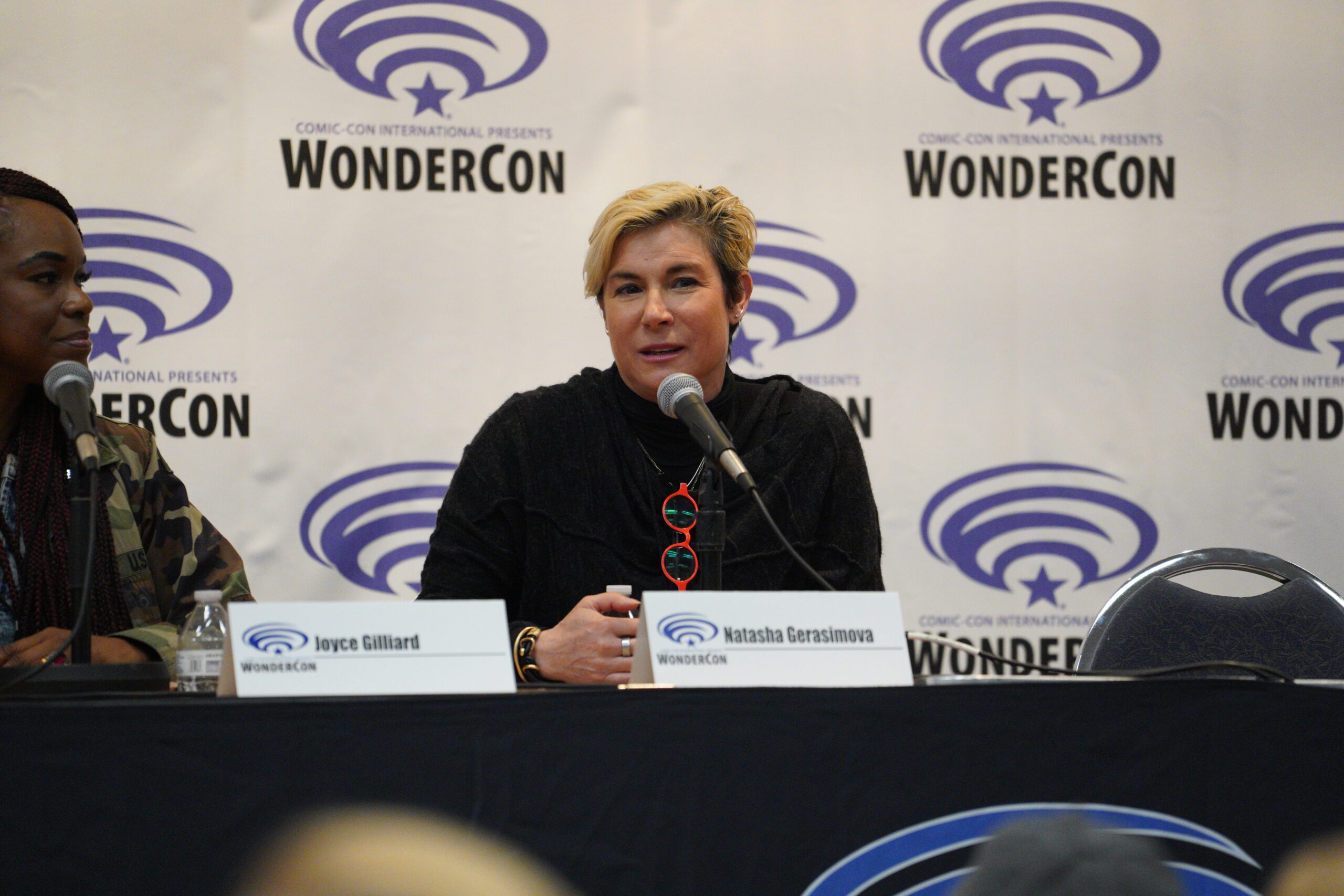
Natasha, you mentioned claymation being one of the ways you fell in love with filmmaking. Have you tried going back to that medium? Is it something you’d like to practice again?
NG: Yeah. Somehow, I just haven’t. I didn’t get the opportunity because I did not want to work in the digital animation world. I love Aardman Animation, which is a reason why I fell in love with claymation. It is a very hands-on, tactile experience. You don’t get that working in the digital world, but if I were to get a chance to do that now, I would love to.
Lessons From Sets
What is something that you’ve learned that you’ve taken from one project to the next? And do you like working within genre, or staying closer to realistic dramas?
BM: Something that’s important in our industry is that you’re always working with someone different. Every director is different, every producer is different, and every DP is different. There’s always a different approach to each thing. I try to take what I’ve learned from a director or producer to the next project. Kind of work this skill set with someone new, figuring out how they like to work. If it’s something that I’ve encountered before, [then] I think it’s very important to be able to look back at a project and take the notes that you thought were helpful.
EF: What I take from one set to the next is my experience. Makeup technique is always going to change, and you have to be willing to grow as an artist. The thing that comes with me on every job is the core of who I am as a person. You learn, “Okay, these are the things I did well on that last project. These are the things I could have been better at.” You continue to grow not only as an artist but as a person. Being steadfast in who you are from project to project will get you rehired.
In terms of [projects] that I want to work on, I’ve been doing a lot of period stuff. I did a movie last year that was based on the 50s. The Iron Claw is set in the ’70s and ’80s. I’m enjoying this world of creating characters that are real people, biopic-type stuff. I like having a base of a real family or a real person to create characters, so I would love to do a biopic for a musician or something fun like that.
Embracing Recognition
Staying with the topic of makeup, some of my favorite recent examples of subtle makeup are in The Iron Claw and Sofia Coppola’s Priscilla. But the audience doesn’t always seem to take note of it unless it is something extreme or in your face, like, let’s say, The Green Knight. What’s your take on subtle makeup going unrecognized sometimes?
EF: Subtle makeup and hair are what help create a character. When you’re watching it, you are looking at the character as a whole, so you’re seeing their hair, makeup, and wardrobe all together. I think our job is to make it as subtle as possible. But also as period-appropriate and as character-appropriate as possible, where it’s not necessarily something that people are hyper-focused on. I believe that’s how we do our job to the best of our abilities, have it almost fly under the radar.
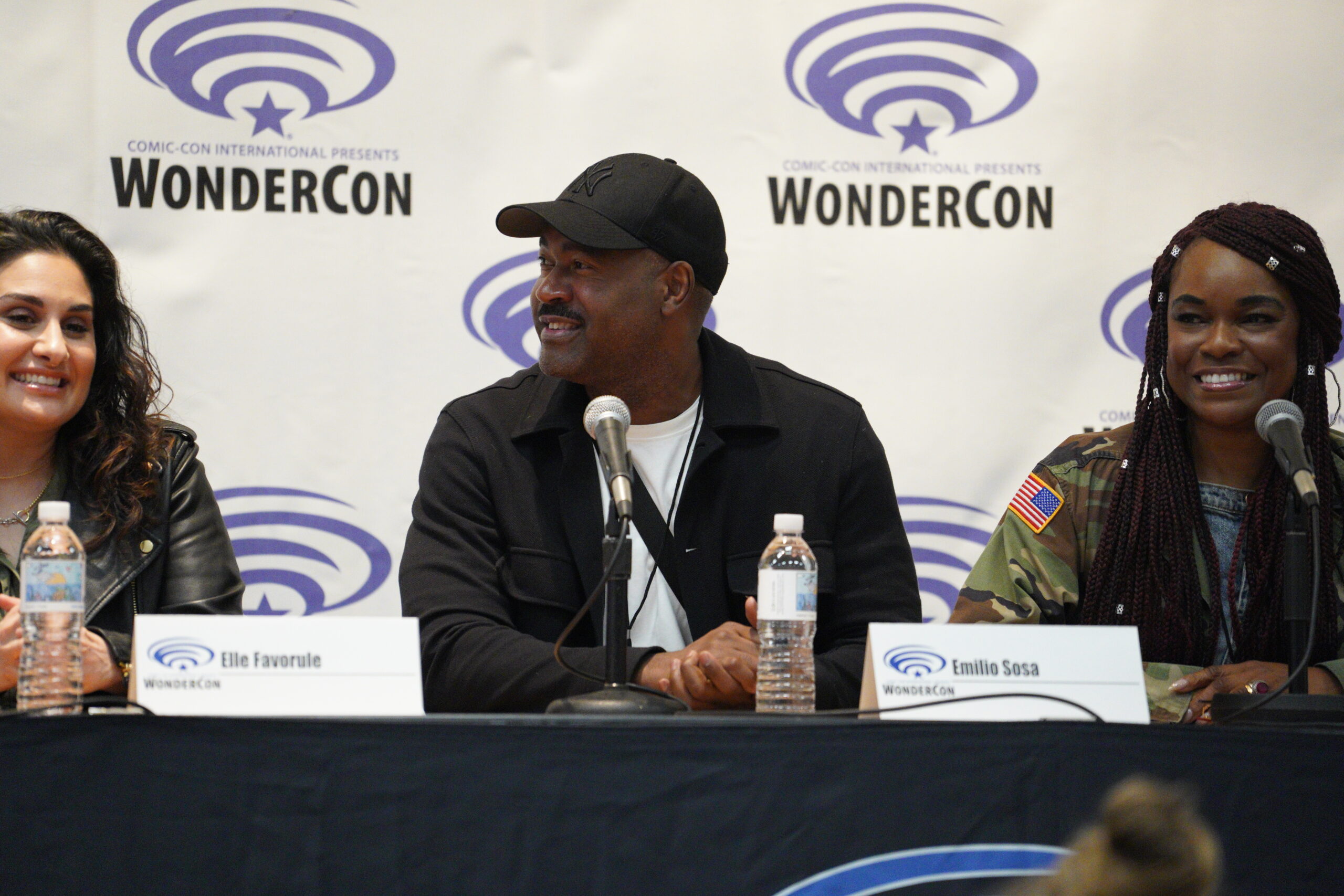
I notice creatives, whether they’re beginners or industry professionals on occasion, tend to make the mistake of downplaying their skills, even amidst compliments. Have you ever dealt with something like that? And if so, how do you come to terms with recognizing it’s okay to acknowledge what you’re doing is of high quality?
JG: At the beginning of my career, I had to downplay my skills, and it was because people were intimidated by what I could bring to the table. When people are intimidated by you and are insecure themselves, they tend to make you feel like you’re not much. It’ll make you want to downplay your skill set. I overcame that big time because I realized that I was good enough. I am worthy, and I am who I am; I can’t help it if someone else is insecure about who they are. I’ve learned to let my light shine and let my skill set shine because the people who are going to need to see me or want to see me are going to bring those people to me to make me a better person and support me in this industry.
ES: That’s the hardest thing for an artist, and it stems from being told you can’t make a living as an artist. How are you going to make a living? Get a real job. They diminish your dream for you. As a kid, you manifest those things, even as an adult. I’ve always had that little bit in me, and I still do it every morning, where I got to give myself positive affirmations. I’m in the room for a reason. If I tell myself whenever I go into a room where I think I’m starting to feel impostor syndrome and don’t feel like I belong, although your work and your name bring you to this place, I always tell myself, you’re in the room for a reason. They hired you for a reason.
But I feel that every other day, when something doesn’t go right, or if I don’t get a job I think I should have gotten, [then] it starts again. Was I good enough? Am I not good enough? As an artist, you always have that, but you have to use the other voices in your head that tell you that you are good enough.
BM: I think owning it is good. It’s coming to events and panels and showcasing the work that you’ve done and not being embarrassed. It’s important to continue to do that. I’m guilty of that [downplaying skills] or have been guilty, and I think, over time, I’ve gotten better at being more open and accepting of compliments. Also, you have to be okay with critique.
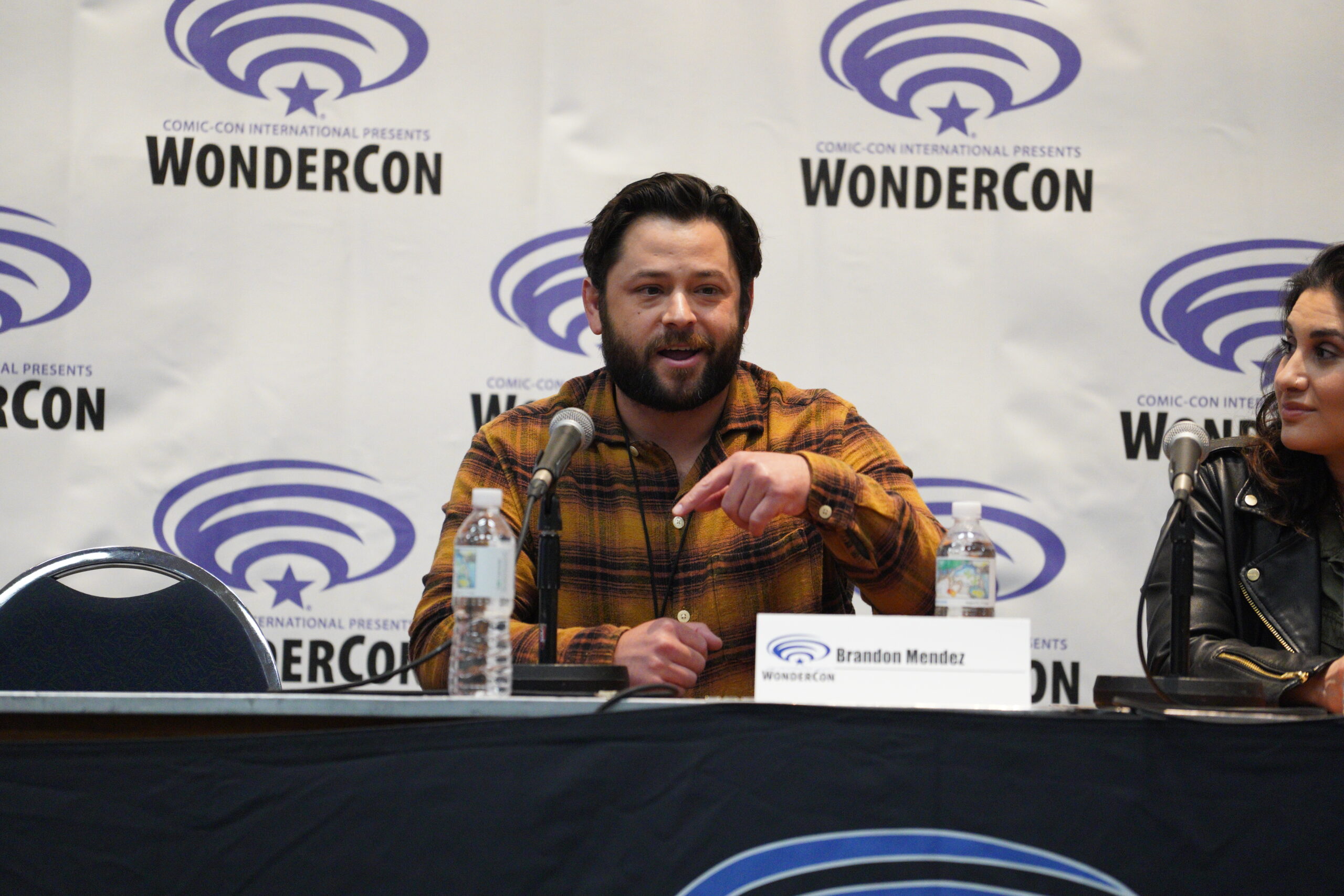
Dealing With Criticism While Supporting Your Work
Nowadays, with the internet, everybody’s a critic. Everyone can criticize your work almost instantly, and people will try to talk badly about a project based on just one individual who worked on a set. They might even try to boycott it as a result. What is your perspective as somebody who is an on-the-line or below-the-line crew member when you see your work being diminished for something you didn’t even do? How does it make you feel being dragged down because of other people’s actions?
EF: It’s hard because you put your heart and soul into every project you do. When people are boycotting projects, I understand that everybody has their reasons as long as you’re looking at it from that perspective. They are allowed to do what they feel is best for them. But I worked on this film, so I’m going to continue to support it, you know? Whatever the case may be. It obviously also depends on why they’re boycotting the film. I think if the reasons are warranted, sometimes you go, “Well, I learned my lesson. I worked on this. It was a good experience. I’m going to take the experience with me, but I don’t want anything to do with this project.” I think it is on a case-by-case basis. I understand where some of that stuff comes from and try not to feed too much into it.
BM: As a production designer, you’re working with people above the line. You also have people who are below you who have this different perspective and don’t know the things you know, and they don’t know the reasons why things happen the way they do. Sometimes, someone below you in your department makes a mistake, and you have to speak to the higher-ups about it. I just feel it’s important to communicate and just figure it out together. I always try to make a balance. Like I know that there are things that need to be met with expectations, but I also know that with your crew, you have to be respectful of them. This is such a big dance. You get on sets of 180 people and everyone’s dancing together, and if someone’s off, the whole project goes wrong.
NG: Whatever project that you’re working on, it is not you. If you can separate it, even though it is a creative endeavor, it’ll be for the best because it doesn’t describe who you are. Let’s say you’re working on something you wouldn’t ever see yourself in. Am I interested in seeing something like that? Maybe not, but you can work on it. I’ve been lucky not to have worked on a lot of projects that I wasn’t at all interested in. Also, every project has its creative challenges. I’d say step outside of whatever it is that this project is about, and focus on what you are doing and what you’re learning. It’s a different animal every time, you know? You’re part of your own experience and exploration. What the whole project is, it doesn’t necessarily have much reflection on who you are.
JG: This recently happened to me where a certain production had a bad name for bad hairstyles. For me, it’s almost like I didn’t even have a chance because, for years, this has been what people said. Coming in as a hairstylist, doing work with this production, I had to work twice as hard and do twice as [well] to make sure that they didn’t have anything to talk about when it came to doing hair. It made me want to do even better, motivated me, and pushed me to say, “I’m going to prove all of you wrong.” Just because others had ill experiences with this production before doesn’t mean it had to be my experience. Knowing what I knew about them helped me do better and be exemplary at what I do.
ES: Like you said, everyone has an opinion and a platform to express it, which is fine. I just don’t get caught up in it. That’s why I do the work to the best of my ability, and then move on. I try to be simply a costume designer, do my job, and go on to the next because you’re never going to please everyone. That’s the biggest thing. You’re not going to win an argument by yelling or screaming. The best thing to do is do the best work you can and not get involved in the little stuff. They have time to criticize other people’s work rather than do it. A lot of it comes from their inability to fulfill themselves and rather pick on someone who’s doing something that they love.
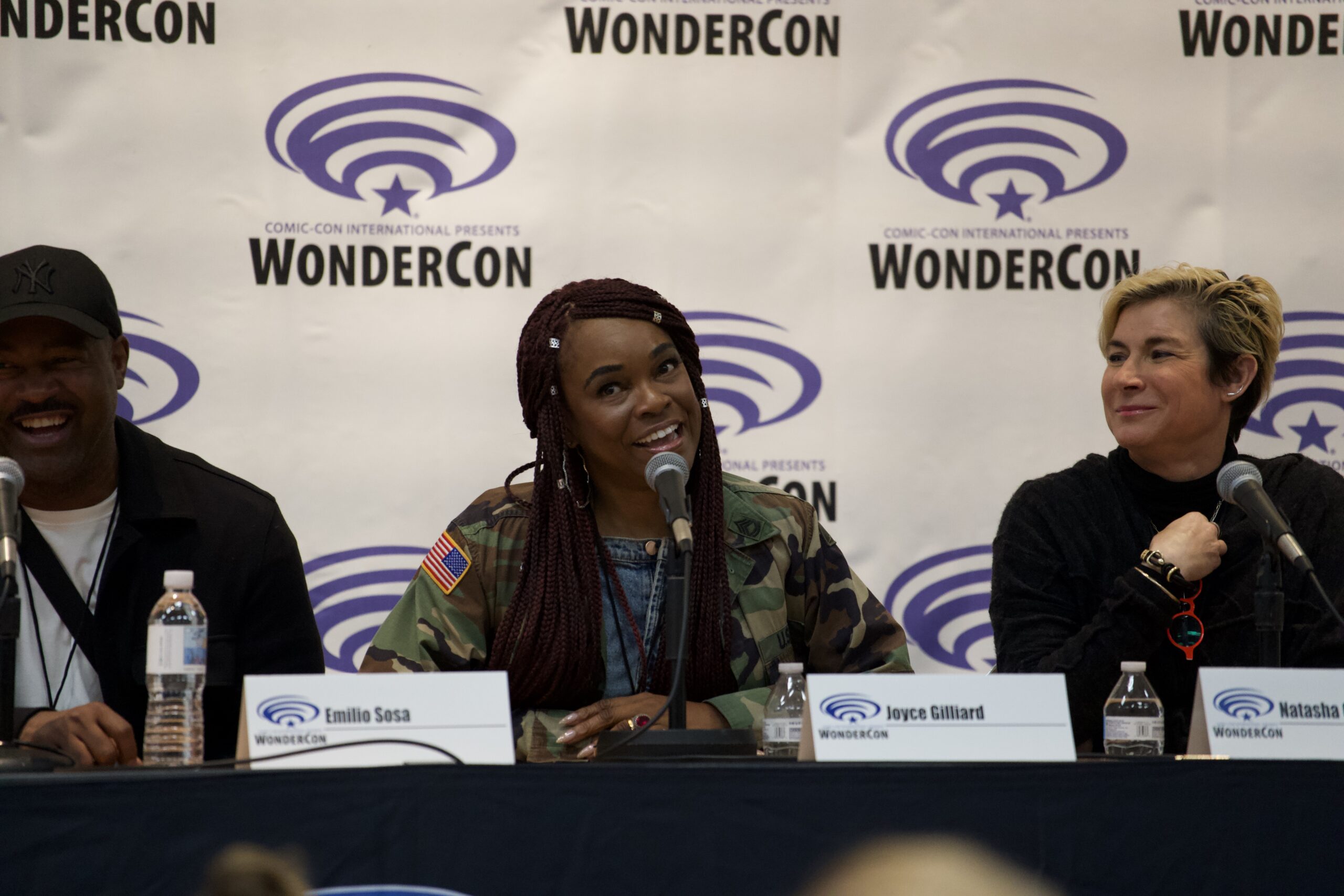
Influences
Lastly, could you mention one or two bodies of work that have inspired you in your journey as a filmmaker?
ES: I look at the career of Ruth E. Carter, a woman of color and two-time Oscar winner for Black Panther. I worked with her twenty-five years ago when I first started, and to see where she is and how she elevated our medium is extraordinary. She’s still as sweet and helpful to my career as she was when I met her thirty-five years ago. I look up to people like that — people who look like me, who have done it before me.
JG: Genius: MLK/X, for one. Just the story itself with Dr. King and Malcolm X was inspiring to work on a historical piece like that. I worked on The Hunger Games, which made me want to do more in fantasy, where I’m creating out of the box. I haven’t done it yet, but I watch a lot of Asian movies and kung fu movies, and I want to do that type of moviemaking now because I love storytelling; I just love everything about it. That’s inspiring as well because I don’t have to be put in a box where I just do period pieces or do this type of hair. I do everything. I do all types of hair. I’m a creator.
NG: Brazil was definitely one of the movies that made me want to be a production designer. I love the sci-fi genre. I love anything that has retro, futuristic elements. Dune (2021) is probably one of my top ten favorite sci-fi films. That has a huge influence. It’s an amazing, creative, well-put-together film from every aspect. There are so many projects that influenced me and different genres, depending on what it is that I’m working on. But Brazil was the beginning of it all.
BM: I remember seeing Jurassic Park when I was a kid. My dad took me. It was such an eye-opening experience. As I was getting older, I loved Sweeney Todd, and now, as I’ve gotten older, my spectrum has broadened to different stuff. I do love to continue watching new films. But I would say Jurassic Park was such a kicker for me because I remember sitting in the movie theater and being like, “Oh my gosh, this is crazy.”
EF: I’m going to be honest with you, I love film. I love comedy and also love animated movies, but that wasn’t what drew me in. It was the actual makeup. Like I said, I love servicing the scripts and creating these characters. But there’s something about an individual relationship. I don’t think people realize how close artists are with their talent physically because we’re right in front of them, inches away from their faces every day. There’s something about those experiences. Like, “Oh, you’ve never worn red lipstick? Trust me, I think it’ll look great on you.” Building that rapport and that trust with someone is huge for me. I think that’s what motivated me more than a specific film or anything like that.
This interview has been edited for length and clarity.
Currently pursuing a film career with a passion for film journalism, storytelling of any kind has allowed me to let my imagination run wild in ways even I couldn’t predict. Expect me to write about film, TV, and the entertainment industry.
This article was edited by John Tangalin.
